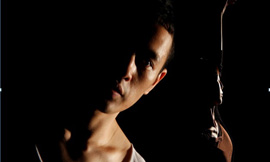
This is the dialogue between times, between style and idea. By the virtue of digital effects as well as performance and extension of projection, musicians and dancers live performance brings Guqin ancient song, Shanghai old song, modern city and industrial sound together to form the multi music space. As time goes by, it witnessed countless touches, collisions, fractions, and integrations. Since dialogue continues, voice form the bottom of heart becomes clearer. Jeff TseJeff Tse, graduated from Shanghai Conserotory of Music in the year 2012, major in Music Design and Composing, and now a student with masters degree of Department of Music Engineering and Designing, mentored by Professor Chen Qiangbin, electronic music production and composing.
Music
2013